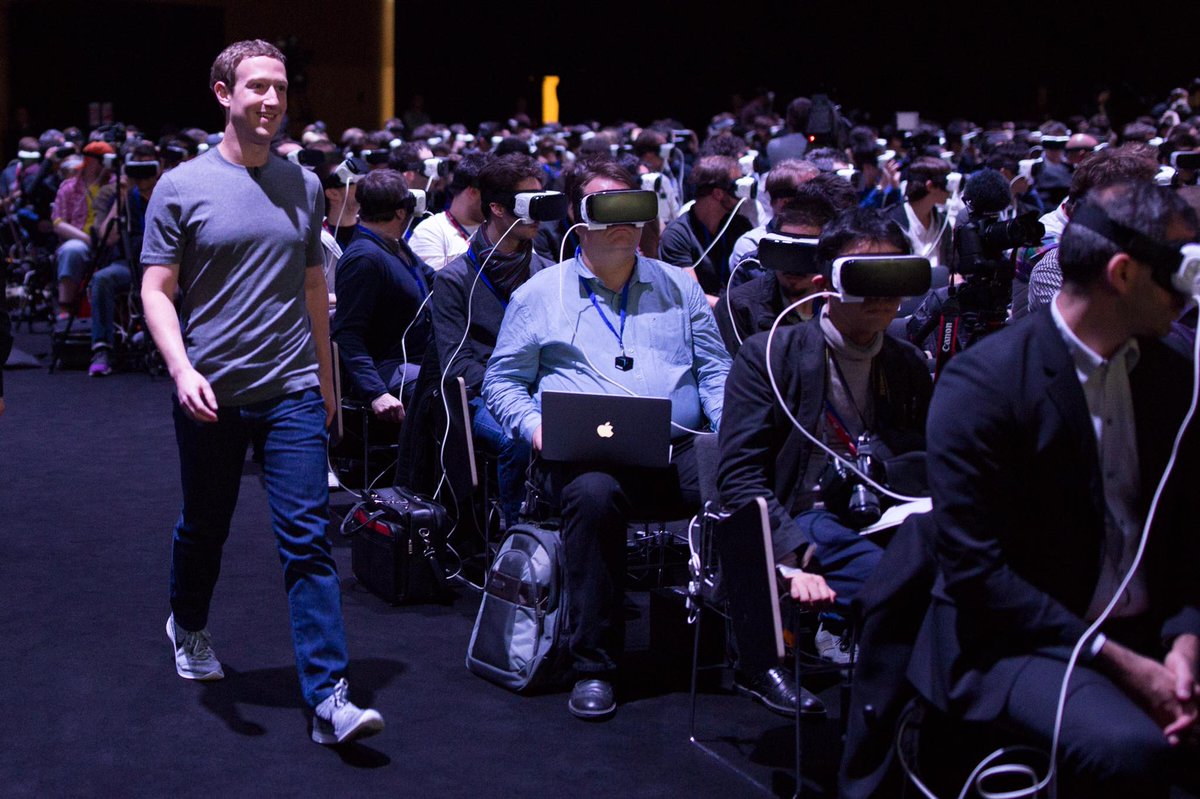The red pill and it's opposite, the blue pill, are popular culture symbols representing the choice between embracing the sometimes painful truth of reality (red pill) and the blissful ignorance of illusion (the blue pill), derived from the movie The Matrix, where the protagonist, Neo, is offered the choice between remaining in the fabricated reality of the Matrix (the blue pill) and an escape into the harsher real world (the red pill).
The photo above is from the mobile world Congress in Spain from earlier this year where Mark Zuckerberg was showcasing the VR capabilities of Facebook. The scene is a lot like The Matrix minus the amniotic pods.
Elon Musk, in a recent interview, claimed that he thinks it is almost inevitable that we will all be living in what he calls - something other than base realities - i.e. simulations. Like in The Matrix. And looking at the photo above, it looks like that day isn't too far away.
Some commentators on tech blogs have been quick to criticise Musk for his statements and compare Mark Zuckerberg to Big Brother from 1984. But is a world like The Matrix all bad?
It is common talk among successful tech entrepreneurs and those in their worlds as to how the income gap between the top 1% and the rest is only going to get wider and are calling for measures like a Universal Basic Income (which I'm also a proponent of). Sam Altman has been one of the more vocal of these ideas.
True, startups have created value and wealth and jobs. But a large portion of the jobs they have created are all those that will soon be done by bots or drones or robots. Be it Uber drivers or the e-commerce delivery guys, they are in no skill addition, no growth, dead end jobs. And these are the majority jobs that have been created by these startups.
Now, if more and more people were to spend more and more time in alternate realities, or simulations as Elon Musk calls them, then this place is going to become the new Internet.
The Internet came first and then social networks blew it wide open, sucking into it poeple's time and attention. It is only too likely that the same thing will happen with VR. As more and more individuals go on it, the social networks (the Facebooks of the world) will make this a social environment where more and more people want to spend time in.
And if universal basic income kicks in, and you are assured of a long life, albeit a boring one in this reality, would you be open to be plugged into a more exciting alternate reality, a simulation? A lot more like The Matrix.
I have a feeling many would say yes. And we may not have to wait all that long to see.





CONVERSATION